|
Party Time
Traditionally it was always the launch of the new Dick Francis novel which kick-started the autumn crime-writing ‘season’. That tradition is splendidly continued by Felix Francis who launched his new novel Bloodline on the 50th anniversary of the publication of that first Dick Francis novel Dead Cert back in 1962. Such was the occasion that his publishers baked him a splendid cake to celebrate and Felix displayed a first edition of his late father’s first novel, wisely keeping a tight grip on it when he spotted me.
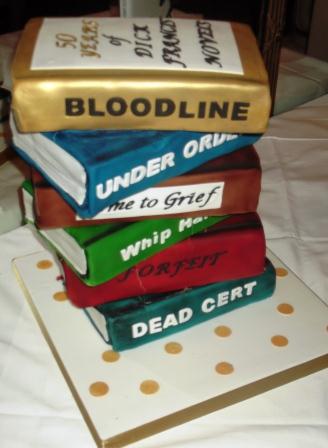
The party, in the sumptuous surroundings of the Lansdowne Club off Berkeley Square even included a book shop, the famous Penguin Pop-Up Shop, where Felix found himself on the front line having to deal with a difficult customer.
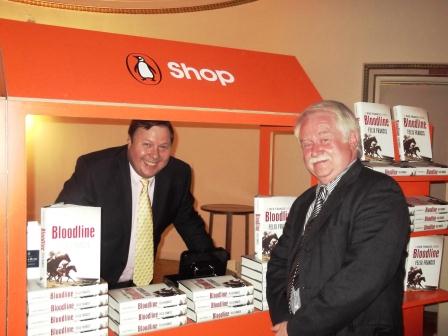
Great Americans
The price of good scholarship was never low and seems higher than ever these days, at least when it comes to crime fiction. So far this year Professor Barry Forshaw’s study of Scandinavian crime fiction Death in a Cold Climate and the recent collection of essays by the world’s great crime writers Books To Die For have both appeared with fairly hefty cover prices and now comes 100 American Crime Writers from publisher Palgrave Macmillan at the Student Loan bursting price of £55 (though on special offer at Amazon for £48.40).
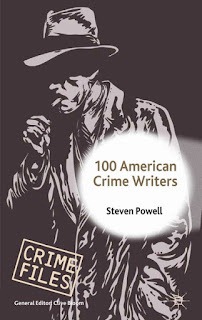
I feel some sympathy for author Steven Powell, of Liverpool University, who has written both academically and well on American crime fiction in the past (particularly on James Ellroy), as his publisher’s pricing policy (even the Kindle version is £36) will put his work out of the reach of many who might be interested in reading it: students of the genre, novice authors, pensioners and mid-list British crime writers.
Despite its cover price, 100 American Crime Writers is an invaluable source of reference for anyone interested in crime fiction from Edgar Allan Poe to Megan Abbott (born 122 years after Poe died) and whilst I would not quibble with any of the writers listed, I am a little disappointed at some of the authors omitted. I would have thought room could have been found for Hilary Waugh, Andrew Vachss and Daniel Woodrell, who all have made significant stylistic contributions to the American school of crime writing. Lots more (possibly another hundred if I think about it) deserve honourable mentions, among them Richard Matheson, Craig Rice, Gerald Petievitch, Michael Malone, Margaret Maron, Doug Swanson, James Hall and Walter Satterthwait.
And I have to say I was rather surprised to note that less than a fifth of the 100 American crime writers featured are female. I will dig out my Sisters In Crime t-shirt (I was proud to be a member, if briefly, back in the 1990s) to see if it still fits and think long and hard about why women seem so under-represented.
Flew in from Camden Town BOAC
(Didn’t get to bed last night)
Okay, pop-pickers, that’s (sort of) a Beatles lyric and if I tell you that the opening paragraph contains an awful pun, a policeman whose back was ‘giving him jip’ and a reference to a famous Primrose Hill pub now a Gordon Ramsey restaurant, then the cognoscenti will realise that all these clues lead to a new DI Christy Kennedy mystery by Paul Charles.
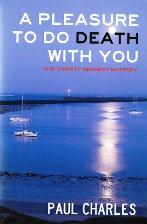
A Pleasure To Do Death With You, from American publisher Dufour, is in fact the tenth novel to feature police detective Christy (Christopher) Kennedy who, like his creator, is an Ulsterman transplanted to the Camden Town area of London, though his latest case calls for a flying visit across the Atlantic to Miami Beach. (Now do you get the Beatles reference?)
Gregory’s Book
Somebody had to say it, so it might as well be me. It was inevitable that this soubriquet would be hung around the neck of the debut novel from the star of the iconic film Gregory’s Girl, the actor John Gordon Sinclair, though the title is actually Seventy Times Seven. And just to emphasise that the author is unlikely to ever escape the Gregory tag, at the launch party thrown by his agents and his publisher Faber, a DVD of Bill Forsyth’s famous 1981 film was being shown in the background.

At the party, I managed a brief chat with the actor-turned-author and I mentioned my admiration for the BBC mini-series Your Cheating Heart about gangsters, drugs, Hells Angels, Country and Western music and Arbroath, written by John Byrne and starring John Gordon, the then unknown Tilda Swinton, songstress Eddi Reader and a youthful Ken Stott as a blithe psychopath long before he became Inspector Rebus.
The series aired just once I believe, in 1990 and John Gordon admitted to me that even he hadn’t seen it since. I have discovered, on the jolly old interweb, that there are several fans who, like me, are prepared to march on the BBC to demand that Your Cheating Heart be issued on DVD as its companion piece, the rather better-known Tutti Frutti, has been. I was first told about it by Daily Mirror Literary Editor (and legendary supporter of crime fiction) George Thaw, who had seen a preview and, being a Scot himself, was keen to spread the word. He insisted that I watch it and if I didn’t like the line dancing scene featuring the Scottish Hells Angels chapter called The Loons of Lucifer, then he would buy me a drink, which was not a threat to be taken lightly. George never had to buy that drink and the scene in question is available to view on You Tube.
I won’t attempt to explain the plot of Your Cheating Heart except to say that the Scottish country music scene and the sinister Loons of Lucifer are central to it and this is the point where you realise just how sinister they are…
http://www.youtube.com/watch?v=3TIhpRltucQ&feature=relmfu
Oddly enough, following that small hymn to Scottish culture (and not forgetting that John Gordon Sinclair was also in Local Hero), Seventy Times Seven is not the Tartan Noir thriller you might have expected. In fact the book is set in both Northern Ireland and America and centres on Danny McGuire, a product of ‘The Troubles’ in Ulster who is chillingly introduced to the reader thus: Death was what Danny did for a living. He didn’t like what he did, but he was good at it.
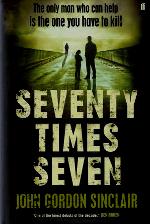
My favourite line, however, comes near the end when two Irish ‘gunmen’ (let us say) in a tight situation are discussing the British ‘opposition’ and one observes: These SAS guys give good ambush.
The title Seventy Times Seven is a quote from the Gospel of Matthew and also a clue to the plot and the book is the most impressive debut thriller I have read this year.
From the Club House
It is good to see the famous Detection Club collaboration Ask A Policeman, first published in 1933, reissued in a splendid new edition by HarperCollins with a cover showing a Police Box performing the function it was designed for rather than as a vehicle for travelling in time and space.
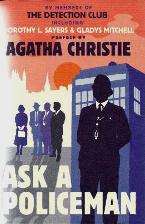
There were about half a dozen of these collaborative novels by this ‘secretive social network of leading detective novelists’ in the heyday of the Club, featuring a galaxy of ‘Golden Age’ stars including Agatha Christie, Dorothy L. Sayers, Margery Allingham, Gladys Mitchell, Anthony Berkeley, G.K. Chesterton and John Rhode
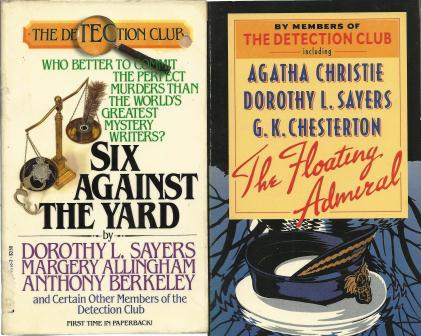
The unique selling point of Ask A Policeman though was that the authors ‘swapped’ their detective heroes and the book is notable for Anthony Berkeley’s take on Lord Peter Wimsey, a ‘manipulation’ (parody?) which according to another contributor Gladys Mitchell, caused ‘the massive lady (Sayers) anything but pleasure’.
The added bonus to the new edition is the inclusion of the essay Detective Writers in England written in 1945 by Agatha Christie at the request of the Ministry of Information for a Russian magazine. ‘Presumably because she was confident that none of her peers in the Detection Club would come across her comments, she was quite candid’ promises the Foreword to Ask a Policeman, but in truth she dishes little dirt and is generous and complimentary to all.
She does,however, refer to Anthony Berkeley’s regular detective Roger Sheringham as Roger Sheridan a mistake which an editor, or a member of that famous Club, should surely have detected.
Film Fun
I make no claims whatsoever to be an expert on British crime films, as my regular intake of film criticism ended when ABC Film Review ceased publication (although Barry Norman has attempted to educate me on numerous occasions in the past). However, if there has to be an appointed expert, it might as well be Barry Forshaw for his knowledge of…some would say ‘forgotten’ others would say simply ‘black and white’….British films is prodigious.
In British Crime Films – Subverting the Social Order (Palgrave Macmillan) he surveys crime films over the period book-ended(roughly) by the two versions of Graham Greene’s Brighton Rock and puts up a valiant defence of films unjustly forgotten or ignored by a generation of cinema-goers who have never seen a black-and-white film. It is a subject little covered and the most valuable part of Barry’s book is actually the appendix which lists the key directors who have had an input into British crime films and it is good that their contribution should be registered.

The elephant in the room (at least since I just put it there) is that despite Barry’s genuine enthusiasm, I have always felt that the Americans do crime films better than us. If you want to see how film reflects, if not actually subverts, the social order, at least in the Fifties and Sixties, then the best British examples are probably the war films or the comedies, or even the comedy-crime films – for surely nothing says more about the British obsession with class than the wonderfully murderous Kind Hearts and Coronets?
When it comes to crime, the Americans had private eyes, better car chases, lots and lots of guns and the better ‘heavies’. They had Cagney, Bogart, Raft, Mitchum, Sterling Hayden, Richard Widmark and Lee Marvin. We had John Mills, Jack Hawkins, Stanley Baker, Bryan Forbes and Dirk Bogarde. (With the exception of Stanley Baker, I rest my case.)
In more recent times, Barry deals with all the usual suspects: The Italian Job, Mike Hodges’ Get Carter (but not his Pulp! which subverts the whole genre), Neil Jordan’s Angel, The Long Good Friday, Mona Lisa and Lock, Stock etc. and though he deals with them sympathetically and enthusiastically (too enthusiastically perhaps with the recent Kill List) he has only limited source material to work from.
It says something about the state of the British film industry that the number of crime films (an undoubtedly popular genre) since The Italian Job in 1969 can be covered in so few pages. A similar survey of American crime films over the same period – probably Martin Scorsese’s output alone – would result in far greater pagination.
Fame at Last
Music and football tend to have Halls of Fame and in Hollywood the stars leave impressions in wet cement. For crime writers, the equivalent must surely be to get an honourable mention in that legendary magazine Black Mask which, it would appear, is something I have – or rather this column has – just achieved.
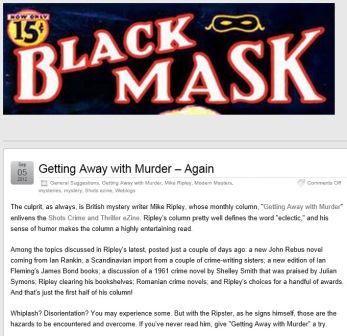
Of course, this is Black Mask the website and to fair, the honourable mention cited first appeared on Les Blatt’s marvellous Classic Mysteries site (www.classicmysteries.net) and I have no idea how it made its way on to the web pages of Black Mask. I am not complaining, though, and fairly confident that no sock puppets were hurt in the process.
Cold Cases, Hot Books
Two novels from Orion in November, from very famous crime writers, feature very famous fictional policemen in the early Autumn of their careers, both now working “cold cases” rather than pounding a front-line beat. Of course, quite a bit of front-line policing and a fair amount of pounding are inevitably involved for the detectives are none other than John Rebus and Harry Bosch, as created by Ian Rankin and Michael Connelly respectively.
The first thing to say is that both The Black Box and Standing in Another Man’s Grave are very good indeed; the second thing is to notice the similarities between these two great characters.
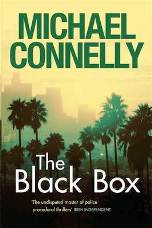
Both Bosch and Rebus are not only on “cold case” duty, but both have, in the course of the new books, to go on road trips (significantly so for Rebus) away from their normal hunting grounds in order to track and trap their murderous quarry. Both have relationship issues with daughters (a tad mawkishly in the case of Bosch), both are in conflict with their administrative bosses and both are also under investigation by their respective internal affairs departments. (In Ian Rankin’s book this involves a reappearance of Malcolm Fox from his earlier novel The Complaints). And both have time to indulge their passion for different types of recorded music, whilst neither seem to own a radio or a television. I am always interested to discover that sixty-year-old policemen with busy day jobs have almost as much time to devote to vinyl or CD track selection as, say, writers.
In The Black Box, Bosch investigates the 20-year-old murder of a Danish journalist in the middle of the Los Angeles riots following the brutal treatment of Rodney King by the LAPD. The case has a personal element for Bosch as he attended the original crime scene during the rioting and his hunch that the shooting of the Danish girl (nicknamed ‘Snow White’ by the investigators) had nothing to do with the riots begins to grow into a certainty. Bringing the culprits to justice is, however, another matter.
The very welcome return of Inspector Rebus in Standing in Another Man’s Grave involves him driving the length and some of the breadth of Scotland several times, in the hunt for a serial killer who haunts the A9 road, who may be linked to “cold case” murders and the very recent disappearance of a young girl whose family circumstances are, suspiciously, of great interest to more than one well-known Edinburgh gangster.

I have to give a large number of Kudos points to publisher Orion for producing an advanced proof with a dust jacket in the form of a blood-stained map of Scotland. It really is a fantastically impressive production number (aided by the fact that the book is very good). Would it be heresy to suggest that this bound proof cover is better than the proposed cover for the finished book, which is published on 8th November?
|
|
Legal Reasons
There was a time when John Grisham’s UK publisher would ask, nay demand, that reviewers signed detailed ‘confidentiality agreements’ before being handed advanced proofs of his new novel. These agreements were, according to the Ripster family solicitor Sir Bufton Tufton, not worth the recycled paper they were printed on and seemed solely designed to prevent us leaking the shocking information that the new book might or might not (usually might) contain lawyers.
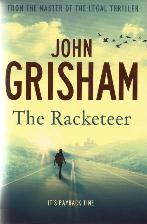
Mr Grisham’s current British publisher, Hodder & Stoughton, have thankfully dispensed with such tomfoolery and I can tell you that the new John Grisham novel is The Racketeer and is published on 6th November. It contains a lawyer.
Letters Column
This column does not have the space, let alone the inclination, to engage in correspondence with its many readers, but a bumper postbag of more than one communication in September prompts me to set a precedent.
Firstly, the reclusive John Lawton came out of hiding to compliment me on my piece on the passing of Gore Vidal, whose work he had covered in various television documentaries in the past.
Secondly, my comment that I could not recall reading too many crime novels set in Romania was immediately challenged by author David Brierley (from his hideaway in the South of France), who reminded me of his own most excellent 1998 thriller The Cloak and Dagger Girl.

How could I have forgotten a book which has as its opening paragraph: The first time Liliana showed herself naked to a man was on a desert trolley at the Bucuresti Hotel. It was a December evening in 1989.
And I am grateful to several readers who advised me to read the ‘guest blog’ by Swedish crime writer Mons Kallentoft in the Shotsmag Confidential section of this very magazine for what is certainly the quote of the month:
Many of my British colleagues are manic jokers; they can´t open their mouths without cracking a joke, it seems. I am not much of a comedian and while I certainly love my colleagues’ company and the entertainment of it all, it makes me feel like a stiff polar bear with a frozen sense of the world. Don´t take it so bloody seriously, man, I say to myself. Relax. Tell a Viking joke.
Next month: Viking jokes, please.
Unfair Advantages
There should be a limit on how many talents one person can have.
Take Fidelis Morgan for example: she is an actress who has appeared on television, in the West End and with the Royal Shakespeare Company; and also a playwright, adapting (among others) Patrick Hamilton’s famous novel Hangover Square for the stage; she has directed stage productions and written an acclaimed study of female playwrights of the Restoration theatre; she has collaborated with Lynda La Plante on a thriller for Channel 4; is also a noted biographer and the author of award-winning historical mysteries featuring the Countess Ashby de la Zouche which began with Unnatural Fire in 2000. And now she’s become a publisher.
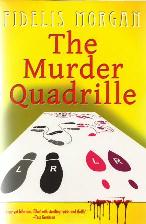
Available this month as both a paperback and a Kindle e-book, Fidelis’ new novel The Murder Quadrille also marks a departure from the historical field in which she excels, for this is a very modern mystery featuring the chattering suburbanite classes at a dinner party where murder is very much on the menu.
The Perils of a Famous Father
I was quite surprised, nay shocked, to see an early portrait of the Dowager Lady Ripster in a new paperback book, for I thought her previous identity had been expunged from the historical record.
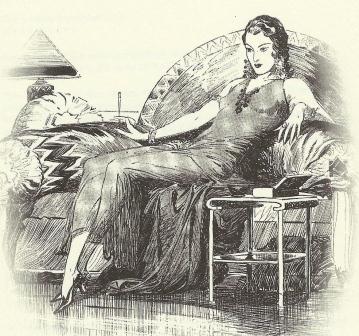
However, one cannot hide youthful notoriety for ever and so I can do no other than note that Titan Books have just published a new edition of Sax Rohmer’s 1931 thriller Daughter of Fu-Manchu.
Set in 1913 London, the evil mastermind Fu-Manchu faces the threat all parents dread: a cult-leading, power-hungry daughter; and I give nothing away by revealing that more adventures are planned. Sax Rohmer’s famous villain was to feature in novels from 1913 to 1959 and is said to have been the inspiration for other fictional villains, including Ming the Merciless and Dr No, though I am sure other racial stereotypes are available.
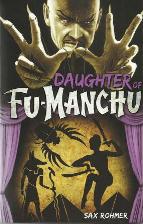
I understand that Titan Books have plans to reissue the entire Fu-Manchu canon, Daughter being the fourth to appear so far and they have also been busy reissuing the classic spy stories of Helen MacInnes.
I have already expressed my gratitude that MacInnes’ early work – including her exceptional wartime thrillers Above Suspicion and Assignment in Brittany – has been revived by Titan and now they are moving into titles from the 1950s and 60s, the first of which is Decision At Delphi, first published in 1960 and set, obviously, in Greece.
Helen MacInnes, a Scot who moved to America in 1937 had the knack of utilising her experience of extensive travel in Europe with solid espionage plots, believable characters and a first rate sense of suspense, which makes many of her novels read like Hitchcock film scripts. Although four of her books were filmed, none were directed by Hitchcock, which is a pity as that would have been interesting.
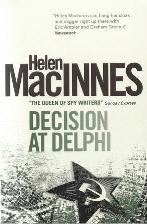
Rapid Responses
There is far too much going on to report everything in the detail and accuracy so long associated with this column, so a rapid news-in-brief column will have to suffice.
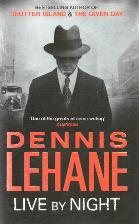
It would be very remiss of me not to mention the upcoming novel by another of crime writing’s ‘big beasts’, Dennis Lehane, whose new historical mystery set in the Boston underworld of 1926, Live By Night is published by Little, Brown later this month.
*
Concern has been expressed that Lee Child’s promotional tour for his latest Jack Reacher thriller A Wanted Man, which I am informed was published in very late August, was relatively subdued this year.

I can now reveal that Lee was actually kidnapped by millionaire playboy (and fanatical Reacher fan) Prince Ali Karim, who held the poor author in one of his rather shady warehouses until he agreed to sign a copy of his new book. I am told that Lee had his ankles manacled to a particularly low chair (the ‘Tom Cruise’ chair) so as not to appear taller than the diabolical Prince for the obligatory photograph, or ‘trophy’ as Ali Karim calls them.
*
What a conundrum. I have received a proof copy of The Prophet by Michael Koryta, scheduled to be published by Hodder in February 2013. The problem is that the proof is hermetically sealed in plastic and comes with a warning label saying: If you decide to unwrap this book, you will set in motion a chain of events from which there is no turning back.
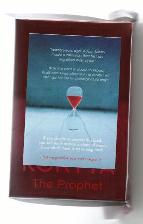
Now I am not especially superstitious, but I am curious as to whether the proof would be worth more to a collector if it remained “mint in box” and thus, if I open it I will never be able to sell it on the thriving black market which I am assured exists in such ephemera.
*
For legal reasons I was unable to attend the recent Bloody Scotland event, which turned out to be a crime fiction festival and not the expression of complaint I first assumed it was. I am told by all who survived and returned safely to the south of Hadrian’s Wall that it was a spectacularly enjoyable and well-organised event and indeed my old convention-going chum Calum MacLeod reports on it for this very magazine (see Features on the Home Page).
I was, however, aware that Bloody Scotland would be the launch pad for a new initiative from publishers Orion. The Murder Room project, full details of which can be found at http://www.themurderroom.com/ is basically the electronic publishing, indeed in some cases the rescuing, of a legion of crime fiction titles which do not deserve to be forgotten.
Whilst the Murder Room’s heart is certainly in the right place, I am saddened that many of these titles will not appear as proper books and so I selected a mere handful of the excellent titles on offer from my personal, much-loved, paperback collection in the hope it will encourage a new generation of readers to try them out on their various electronic gadgets.
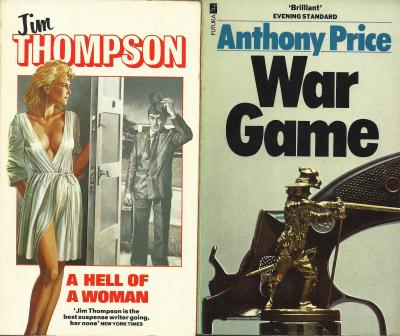
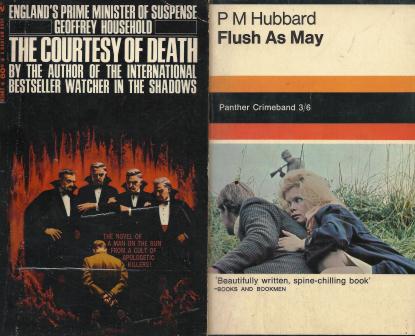 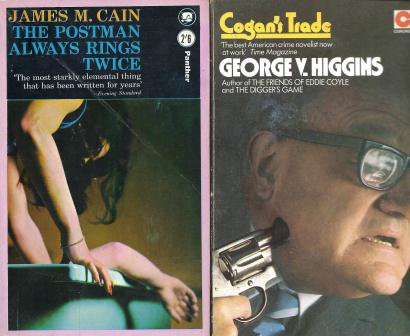
*
It seems strange to think of “archaeologists” and “spoiler alert” in the same sentence but I suppose there may be the odd person who has not read this much-loved masterpiece. Not that any sensible person would own up to not having read it, certainly not an internationally best-selling crime writer giving an interview to this very magazine….
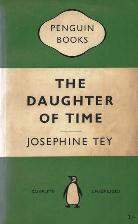
*
And delving even further back into history for a good murder story, Bernard Knight’s most excellent ‘Crowner John’ series continues (although this is technically a prequel) with Crowner’s Crusade from Severn House. Set in 1192 at the end of the Third Crusade, King Richard begins his ill-fated journey back from Palestine accompanied by his loyal knight Sir John de Wolfe who is soon to find himself appointed the first official ‘Crowner’ or, as we would say, Coroner.
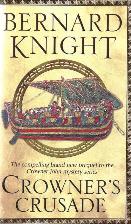
*
I am not normally one for ‘true crime’ because it scares me rigid as a rule, but the superbly illustrated Capital Crimes from Random House takes a historical approach to crime and violence in London over 700 years, from the Peasants’ Revolt to Zeppelin raids and beyond.

The author is Max Décharné, a name probably better known in music circles as the author of The Hipster’s Guide to Rockabilly Music. But he was written on London before, especially on life in the King’s Road, and famously on crime fiction and the cinema in Hardboiled Hollywood.
Angels Abroad
My quest to find one of my ‘Angel’ novels on every continent continues thanks to the help freely offered by an international network of people with camera phones visiting far more interesting places than I do.
In September I was cruelly reminded of how pleasant the beaches of Greece are, assuming the locals do not suspect you of being a German financial official.
.JPG)
And I am indebted to that masterly South African crime writer Deon Meyer for spotting this copy of Angels in Arms which had clearly been released into the wild at the side of the road in Bo Karoo, Northern Cape.

Pip! Pip!
The Ripster
|